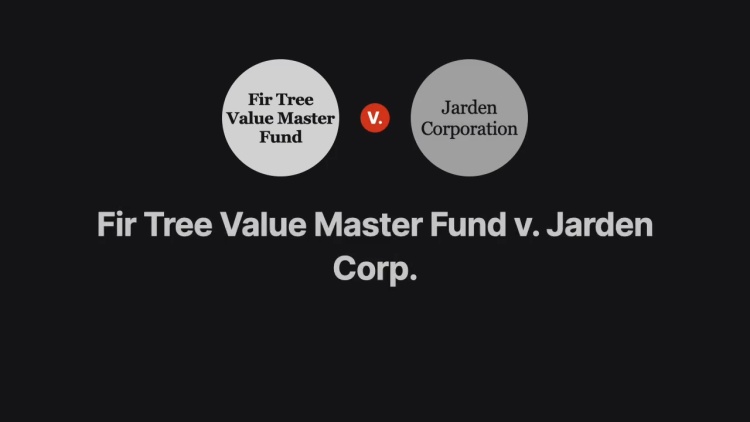Fir Tree Value Master Fund v. Jarden Corp.
Delaware Supreme Court
236 A.3d 313 (2020)
- Written by Angela Patrick, JD
Facts
Martin Franklin was the founder and chief executive officer of Jarden Corporation (Jarden) (defendant), a publicly traded corporation. Without the knowledge of Jarden’s board of directors, Franklin negotiated to sell Jarden to Newell Brands (Newell). Partway through the negotiations, the board learned about the potential sale and approved the negotiations. However, Franklin did not follow the board’s instructions and used his own negotiation tactics and numbers. In the end, Jarden’s board and shareholders approved an offer from Newell to buy Jarden’s shares for $59.21. Fir Tree Value Master Fund, LP (Fir Tree) (plaintiff) filed an appraisal action, asking the chancery court to independently determine the fair value of Fir Tree’s Jarden stock. Relying on the value of comparable companies, Fir Tree claimed that the fair value was $71.35. Jarden used a discounted-cash-flow valuation method to argue that the fair value was $48.01. The chancery court found that (1) Jarden’s stock price was informationally efficient, i.e., it responded quickly to the public release of material information; (2) no material, nonpublic information existed that would have impaired the accuracy of Jarden’s open-market stock value; and (3) the fair value of Jarden’s stock was $48.31, which was the stock’s unaffected market price, i.e., the open-market price before the deal was disclosed publicly. Fir Tree appealed.
Rule of Law
Issue
Holding and Reasoning (Seitz, C.J.)
What to do next…
Here's why 907,000 law students have relied on our case briefs:
- Written by law professors and practitioners, not other law students. 47,100 briefs, keyed to 996 casebooks. Top-notch customer support.
- The right amount of information, includes the facts, issues, rule of law, holding and reasoning, and any concurrences and dissents.
- Access in your classes, works on your mobile and tablet. Massive library of related video lessons and high quality multiple-choice questions.
- Easy to use, uniform format for every case brief. Written in plain English, not in legalese. Our briefs summarize and simplify; they don’t just repeat the court’s language.





